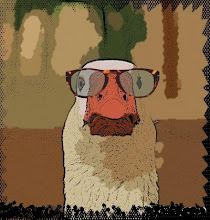And a hallmark of civilization.
Though it's good to be free,
I-ron-i-cal-ly,
It isn't, without regulation.
This past weekend I discovered the Unlearning Economics blog, thanks to my new Twitter friend Frances Coppola (There once was a lady from Kent...), who linked to a post on The Fantasy of a Pure Market. The anonymous economics student/blogger complains of a certain shallowness in libertarian thought, specifically, that it posits
some sort of neutral laissez-faire state, beyond which any ‘intervention’ is deemed unnatural. The ideal minarchist libertarian state would enforce property rights and contracts, and prevent force, fraud and theft. People could own what they acquired through ‘voluntary’ exchange; they would be free to do what they wanted with their property. I find libertarians rarely explore their preferred institutions much deeper than this, and build many of their arguments on the distinction between ‘markets’ and ‘government.’ However, on close inspection, the boundary between the two becomes blurred.The crux of "Unlearning's" argument is that the things that libertarians hold out as "natural", fundamental underpinnings of free markets - such as property and contracts - are in fact social constructs designed to achieve socially optimal ends. It is therefore illogical to argue against "government intervention in the markets" when markets such as we know them would not exist but for government intervention. It's only a question of degree.








No comments:
Post a Comment